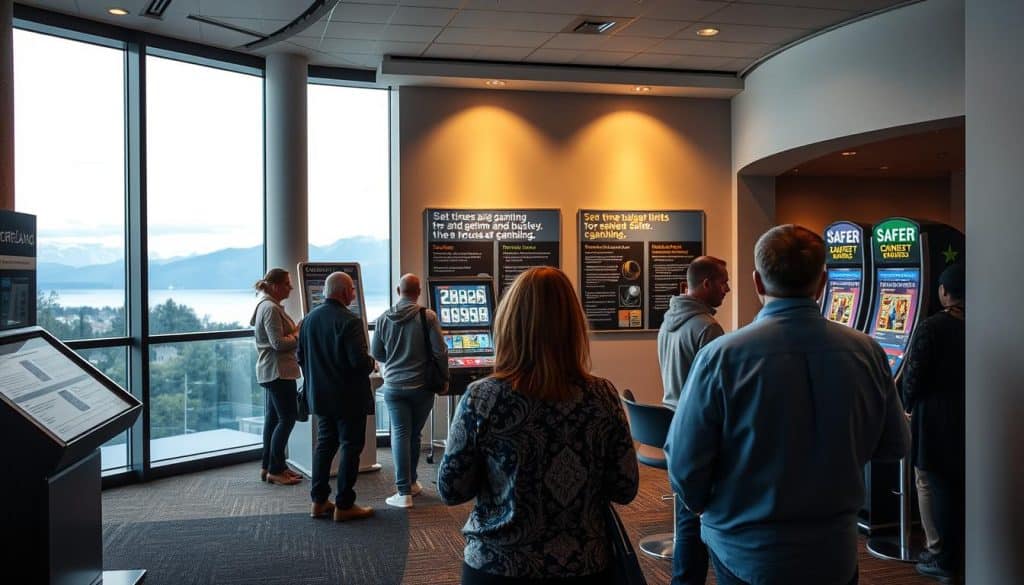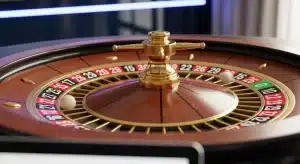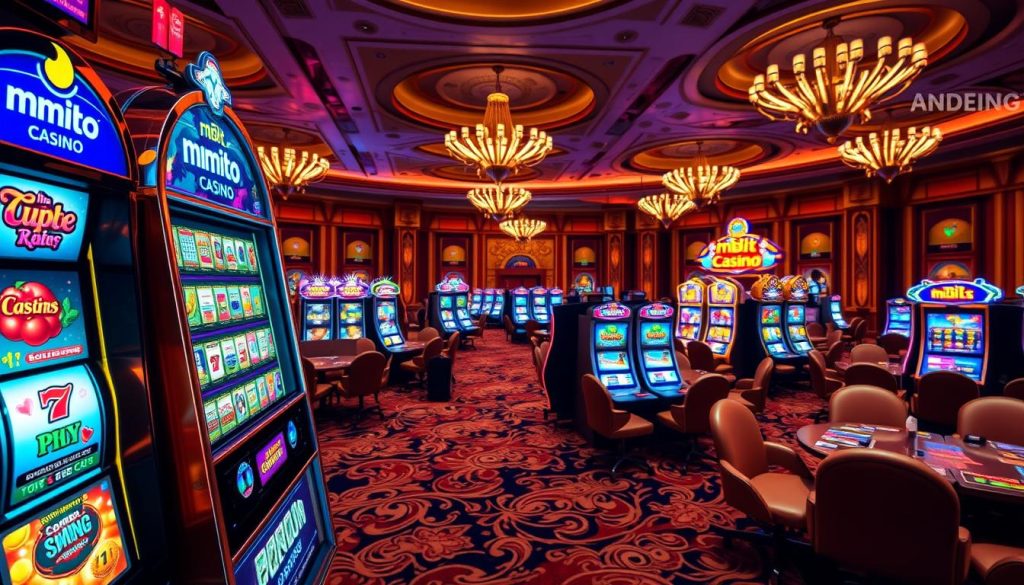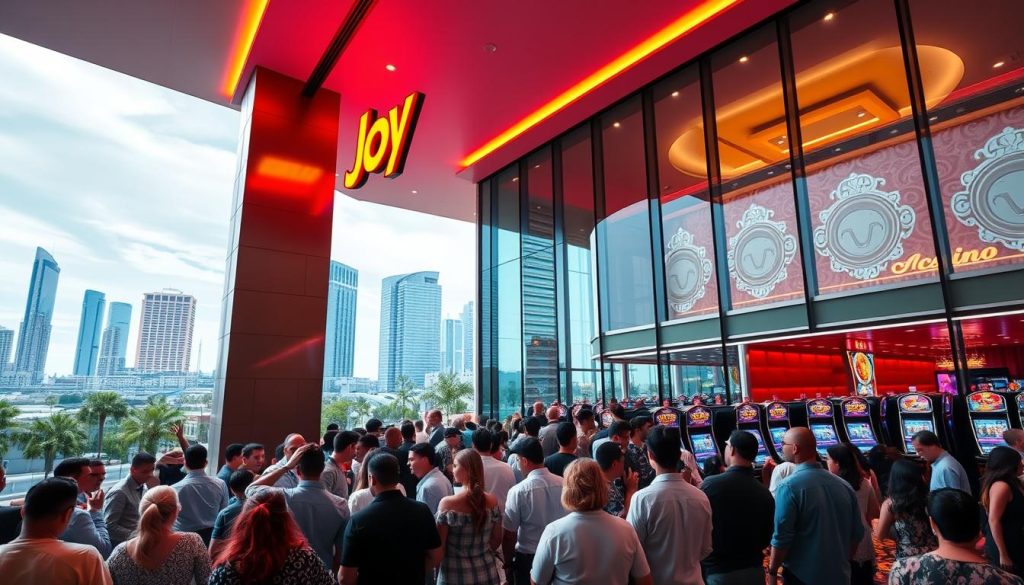I’ve watched New Zealand’s gaming landscape evolve over the years. Pokies fill our pubs, online betting sites are everywhere, and TAB outlets dot every neighborhood. This easy access is convenient, sure, but it carries real risks I’ve seen impact friends and community members.
This isn’t another lecture about avoiding casinos altogether. Instead, I’m sharing what I’ve learned about responsible gambling nz through research, observation, and honest conversations. You’ll find practical strategies, useful tools, and actual statistics that show the real picture of gaming in our country.
You might enjoy occasional horse racing bets or feel worried about your own habits. This guide delivers actionable, evidence-based information. No industry spin. No doom-and-gloom messaging that doesn’t actually help. Just straightforward guidance you can use right away.
Key Takeaways
- New Zealand has widespread access to gaming through pokies, online platforms, and TAB outlets that require awareness and self-management
- Evidence-based strategies and practical tools can help maintain control over betting habits without eliminating entertainment value
- Real statistics throughout this guide provide honest context about gaming behaviors and potential risks in NZ
- Personal limits, time management, and financial boundaries form the foundation of safer play practices
- Recognizing early warning signs in yourself or others enables timely intervention before problems escalate
- Multiple support resources exist specifically for New Zealanders experiencing gaming-related difficulties
Understanding Responsible Gambling
Most people don’t fully grasp responsible gambling until they need it. It sounds simple but requires genuine understanding when you’re placing bets or playing pokies. Getting the fundamentals right makes everything else fall into place naturally.
Think of gambling harm prevention as building a fence before you need one. The principles aren’t complicated, but they demand honesty about your motivations and limits.
What is Responsible Gambling?
Responsible gambling nz means maintaining complete control over your gambling activities. It keeps gambling in the entertainment category rather than problem territory. This isn’t about never gambling—it’s about gambling safely.
At its core, responsible gambling means making informed decisions with money you can genuinely afford to lose. And I mean actually afford to lose—not money you’re hoping to double for rent.
The Department of Internal Affairs defines it as gambling that is “socially responsible and free from crime.” I’ll be more blunt: it’s the difference between enjoying a night out and finding yourself at an ATM at 2 AM.
Responsible gambling is about making informed choices and understanding that gambling should be entertainment, not a way to make money or escape problems.
Importance of Responsible Gambling
The importance goes beyond individual wellbeing, though that’s obviously crucial. Problem gambling creates ripple effects that touch families, workplaces, and entire communities. I’ve personally witnessed friendships strained and relationships destroyed.
Statistics show that approximately 1-2% of New Zealand adults experience significant gambling harm. That translates to tens of thousands of Kiwis. Each person experiencing gambling problems affects an estimated 6-10 other people in their life.
The financial impact extends beyond lost wages. Problem gambling contributes to increased rates of bankruptcy and domestic violence. It also causes employment problems and mental health issues including depression and anxiety.
Gambling harm prevention isn’t just about protecting your bank account. It’s about protecting your entire life structure.
Research shows that social costs of problem gambling can exceed $1,300 per person annually. This factors in productivity losses, healthcare costs, and relationship breakdowns. In New Zealand, the estimated social cost runs into hundreds of millions of dollars yearly.
Key Principles of Responsible Gambling
The key principles of responsible gambling nz aren’t complicated. They require honest self-awareness and discipline when it matters most. These aren’t just theoretical guidelines—they’re practical boundaries that keep gambling in check.
Here are the core principles you need to follow:
- Only gamble with disposable income – Never use money meant for bills, groceries, or savings. If losing it would create financial stress, it’s not disposable.
- Never chase losses – This is where most people get into trouble. Lost money is gone. Trying to win it back typically leads to losing even more.
- Set limits before you start – Decide on time and money limits before your first bet, not during play when your judgment is compromised.
- Don’t gamble when emotional – Avoid gambling when upset, depressed, drunk, or under the influence. These states impair decision-making.
- Understand the odds – The house always has a mathematical edge. Gambling should never be viewed as income generation.
- Take regular breaks – Continuous play leads to poor decisions. Step away, clear your head, reassess whether you’re still enjoying yourself.
These principles sound straightforward when you’re reading them calmly on a screen. But implementing them in the moment is different. That’s when the pokies are flashing and you’ve just had three near-misses.
The challenge isn’t knowing these principles exist. The challenge is actually following them when your brain is flooded with excitement chemicals. That’s why gambling harm prevention becomes a real skill rather than theoretical knowledge.
We’ll spend the rest of this guide building practical strategies that work in real-world situations. Not just in theory.
The Landscape of Gambling in New Zealand
I’ve spent time examining New Zealand’s gambling landscape. What I’ve discovered is both fascinating and contradictory. Our country has created a regulatory system that’s uniquely Kiwi.
It’s well-intentioned but has significant gaps. Understanding this landscape directly impacts how we approach safe gambling practices.
The gambling industry in New Zealand generates substantial revenue. It simultaneously creates challenges for thousands of families. This tension between economic benefit and social harm makes our regulatory approach important.
Overview of Gambling Regulations
The foundation of new zealand gambling laws rests on the Gambling Act 2003. The Department of Internal Affairs oversees this legislation. It distinguishes between different gambling categories with unique regulatory requirements.
Our regulatory framework attempts to balance commercial interests with harm prevention. The Act mandates that gambling operators demonstrate harm minimization before receiving licenses. In practice, effectiveness varies considerably.
Our regulations create clear rules for land-based gambling. However, they leave online gambling in a grey zone. Offshore casino sites aren’t technically legal for New Zealand residents.
Yet they’re not illegal either. There’s no enforcement stopping Kiwis from accessing them. This creates a significant regulatory blind spot.
The Department of Internal Affairs actively monitors compliance through inspections. Gambling venues must display problem gambling information prominently. Staff need training to recognize warning signs.
These aren’t suggestions – they’re legal requirements. Non-compliance brings real consequences.
The purpose of this Act is to control the growth of gambling, prevent and minimize harm from gambling, and authorize some forms of gambling and prohibit the rest.
Despite these strong intentions, implementation challenges persist. Enforcement resources are limited. The rapidly evolving nature of online gambling outpaces regulatory updates.
Popular Gambling Options in NZ
New Zealanders have access to several gambling options. Each has different risk profiles and regulatory oversight. Understanding what’s available helps us make informed decisions.
The most visible gambling option is electronic gaming machines – pokies. They’re scattered across approximately 1,100 venues nationwide. These machines generate the majority of gambling harm in New Zealand.
| Gambling Type | Number of Venues/Outlets | Primary Regulator | Problem Gambling Risk |
|---|---|---|---|
| Pokie Machines | ~16,000 machines in 1,100+ venues | Department of Internal Affairs | High |
| Land-Based Casinos | 6 licensed casinos | Department of Internal Affairs | Medium to High |
| TAB Sports Betting | 650+ retail outlets | Racing Industry Transition Agency | Medium |
| Lotto Products | 1,300+ retail outlets | Lotteries Commission | Low to Medium |
| Online Offshore Casinos | Hundreds of unregulated sites | No NZ oversight | Variable |
Our six land-based casinos operate in Auckland, Hamilton, Christchurch, Dunedin, Queenstown, and Sky City. They offer traditional table games, pokies, and electronic table games. These venues operate under stricter oversight than pub pokies.
TAB racing and sports betting has evolved significantly. What used to be purely venue-based is now predominantly online and mobile. This shift has made betting more accessible but removed natural barriers.
Lotto and lottery products remain the most socially accepted form of gambling. The relatively low risk profile makes these products less controversial. Community funding distribution adds to their acceptance.
Then there’s online gambling – the wild west of our gambling landscape. Many Kiwis access offshore casino platforms that operate outside New Zealand’s regulatory framework. These sites offer everything from slots to live dealer games.
The Role of Gambling Providers
Gambling providers in New Zealand occupy a complicated position. They’re profit-driven businesses required to minimize the very behavior that generates revenue. This inherent contradiction deserves our attention and healthy skepticism.
Under new zealand gambling laws, providers must implement host responsibility programs. This includes training staff to identify problem gambling signs. They must provide information about support services and implement safer gambling policies.
In theory, it’s comprehensive. In practice, results vary.
The most profitable customers for gambling operators are often those experiencing problems. Heavy, frequent players generate disproportionate revenue. This creates a fundamental conflict of interest that corporate social responsibility can’t fully resolve.
Licensed venues must meet specific requirements:
- Display problem gambling helpline information prominently
- Train all staff in identifying and responding to problem gambling indicators
- Implement self-exclusion programs allowing customers to ban themselves
- Provide clocks and natural lighting to reduce time distortion
- Prohibit ATMs in gaming areas
These requirements represent genuine efforts to reduce harm. However, enforcement isn’t always consistent. Some venues do the bare minimum to comply.
Community trusts add another layer to this landscape. Pokie machines outside casinos must operate through community trusts. These trusts distribute profits to local organizations.
This model attempts to offset gambling harm with community benefit. Whether this trade-off is ethically sound remains debatable.
Online gambling providers operating offshore face no such requirements. They’re not bound by New Zealand’s host responsibility standards. They have no staff training requirements or mandatory problem gambling interventions.
This regulatory gap creates significantly different risk environments. It depends on where Kiwis choose to gamble.
Some land-based operators genuinely invest in responsible gambling initiatives. Others treat it as a compliance checkbox. Learning to distinguish between genuine commitment and performative responsibility helps us make better decisions.
The gambling industry in New Zealand employs thousands of people. It generates substantial tax revenue. These economic contributions create political pressures that sometimes conflict with harm reduction objectives.
Recognizing the Signs of Problem Gambling
Problem gambling develops quietly, like sand slipping through your fingers. Each loss seems small until you realize how much is gone. Early recognition makes the difference between a minor fix and a major crisis.
Denial is a core feature of problem gambling. Your brain creates clever reasons for behaviors that are clearly problematic. This makes recognition particularly difficult.
Behavioral Indicators That Signal Trouble
Certain patterns emerge consistently among people developing gambling problems. These warning signs aren’t isolated incidents. They’re behavioral clusters that appear together and escalate over time.
The most reliable indicators include:
- Spending more time or money than intended: You plan to spend $50 for an hour. Suddenly it’s four hours later and $300 is gone.
- Preoccupation with gambling: Constantly thinking about your next session or reliving past wins. Planning strategies when you should focus on other things.
- Using necessary funds: Gambling with money allocated for rent, bills, or groceries.
- Concealing gambling activities: Lying to family or friends about how much you’re gambling. Hiding where money is going.
- Borrowing or selling possessions: Taking loans or using credit cards to fund gambling. Selling items to get gambling money.
- Restlessness when cutting back: Feeling irritable or anxious when trying to reduce gambling. Agitation when attempting to stop.
- Escape gambling: Using gambling to avoid problems or relieve negative emotions. Gambling to escape stress.
- Chasing losses: Returning to gamble soon after losing. Trying to win back losses with increasingly risky bets.
These patterns don’t exist alone. Financial warning signs often appear first. Unexplained money shortages, maxed credit cards, or requests to borrow money.
Emotional changes follow next. Mood swings tied to gambling outcomes appear. Increased secrecy or defensive reactions develop when questioned about gambling.
Determining When Professional Support Becomes Necessary
Here’s something that might surprise you. If you’re questioning whether your gambling is problematic, that questioning itself is significant. People without gambling issues rarely wonder if they have a problem.
Seek problem gambling help when gambling causes measurable harm. Financial stress is the most obvious sign. Struggling to pay bills or accumulating debt tied to gambling losses means it’s time.
Relationship conflicts provide another clear signal. Family members express concern about your gambling. You lie about gambling activities or create tension in important relationships.
Work or academic problems linked to gambling represent serious red flags. Missed deadlines, decreased performance, or attendance issues appear. Your livelihood shouldn’t be compromised by entertainment activities.
Emotional indicators matter too. Gambling becomes your primary coping mechanism for stress or depression. You feel desperate or consumed by gambling-related thoughts.
| Life Area | Early Warning Signs | Moderate Concerns | Severe Indicators |
|---|---|---|---|
| Financial | Occasional overspending on gambling beyond planned budget | Using credit cards or savings for gambling; hiding transactions | Unable to pay essential bills; accumulating significant debt; borrowing money |
| Emotional | Mild irritability when unable to gamble; thinking about gambling frequently | Mood swings tied to wins/losses; gambling to escape negative feelings | Severe anxiety or depression; feeling hopeless; suicidal thoughts related to gambling |
| Relationships | Occasional arguments about gambling spending; minor dishonesty | Regular conflicts; lying about gambling activities; withdrawing from family | Relationship breakdowns; isolation; family intervention attempts |
| Time Management | Gambling sessions occasionally run longer than planned | Neglecting hobbies or responsibilities; preoccupied with gambling | Missing work or important events; gambling consuming most free time |
The Clinical Nature of Gambling Dependency
Understanding gambling addiction requires shifting away from moral judgments. Recognize it as a legitimate behavioral addiction with neurological underpinnings. This isn’t about weak willpower or character flaws.
Gambling activities can literally change your brain chemistry in ways similar to substance addictions. Problem gamblers show altered activity in brain regions involved in reward processing. Impulse control and decision-making areas are affected too.
The neuroscience here is fascinating and important. Intermittent reinforcement from gambling creates unpredictable wins. This is one of the most powerful conditioning mechanisms in psychology.
Simply “deciding to stop” often isn’t effective without proper gambling addiction support. Your brain has been conditioned to seek neurochemical rewards from gambling. These neural pathways don’t disappear through willpower alone.
In New Zealand, approximately 1-2% of adults experience problem gambling. Another 2-3% are at moderate risk. That translates to roughly 80,000-160,000 Kiwis directly affected.
Problem gambling help addresses a real clinical issue with evidence-based treatment. Cognitive behavioral therapy and support groups play important roles. Financial counseling and sometimes medication can help too.
Recovery is absolutely possible. With appropriate support, most people develop healthy relationships with gambling or choose abstinence. They rebuild their finances and repair damaged relationships.
Setting Limits for Responsible Play
Safe gambling practices require moving beyond good intentions into specific boundaries. Most people understand they should set limits. Creating ones that hold up during a gaming session requires deliberate planning.
The gap between knowing you need limits and having enforceable ones matters most. This is where many responsible gambling efforts fall apart.
Someone decides to gamble responsibly and sets vague limits like “not too much.” Those boundaries dissolve the moment they’re tested. The solution isn’t more willpower – it’s better systems.
Creating a Personal Gambling Budget
Your gambling budget needs to start with brutal financial honesty. Sit down with your bank statements. Calculate your actual discretionary income after covering every essential expense.
Cover rent or mortgage, utilities, groceries, transport, insurance, and existing debt payments. Don’t forget savings contributions.
What’s left is your discretionary income. Your gambling budget should only come from a portion of that amount. The 5% rule works well for many New Zealanders.
Allocate no more than 5% of your after-tax income to gambling. This only applies if you’re debt-free aside from your mortgage.
Track this as a completely separate budget category. Don’t lump it together with general entertainment spending. It can hide among movie tickets and restaurant meals.
Write down your monthly gambling budget at the start of each month. That money is gone until the next month once spent.
Some practical budget guidelines that reinforce safe gambling practices:
- Never use money earmarked for bills or essentials
- Don’t increase your budget after a win – maintain consistency
- Reduce your budget immediately if you feel financial pressure
- Review your budget quarterly to ensure it still fits your financial situation
Time Management Strategies
Gambling environments are deliberately designed to make time disappear. Casinos remove clocks and windows. Online platforms use endless scroll designs.
Gaming interfaces minimize friction that might cause you to pause. Fighting this requires active time management.
Set specific time limits before you start any gambling session. Two hours maximum per session is a reasonable benchmark. Take mandatory breaks every 30 to 45 minutes.
These aren’t suggestions – they’re rules you establish when your judgment is clear.
Use your phone’s alarm function. Place your phone across the room where you’ll need to physically get up. That movement breaks the gambling trance.
Never gamble when you’re tired. Decision-making ability degrades significantly with fatigue. You’ll make choices when exhausted that you’d never make when rested.
If it’s past 10 PM and you’re considering a gambling session, the answer should automatically be no.
Tools for Tracking Gambling Activity
Modern technology offers excellent tools for monitoring your gambling behavior. Using them is essential for maintaining safe gambling practices. Most banking apps now include transaction categorization.
Set up a specific category for gambling and review it weekly.
Dedicated apps like Gambling Diary or similar tracking tools available in New Zealand help. Log each session with detailed information: amount spent, time spent, and your emotional state. This data reveals patterns you might not notice otherwise.
For online gambling, virtually every licensed site now offers reality checks and deposit limits. These aren’t just regulatory checkboxes. They’re genuinely useful tools if you actually configure them properly.
| Limit Type | How to Implement | Effectiveness | Best For |
|---|---|---|---|
| Daily Deposit Limits | Set through online casino account settings before playing | High – creates immediate spending barrier | Online gambling, impulsive players |
| Session Time Alerts | Enable reality checks every 30-60 minutes | Medium – easy to dismiss but creates awareness | All gambling types, time blindness issues |
| Manual Spreadsheet Tracking | Enter every gambling transaction immediately after session | Very High – manual entry creates conscious awareness | People who respond well to data and accountability |
| Banking App Categories | Tag all gambling transactions, review weekly totals | High – provides clear financial picture | Budget-conscious players, all gambling formats |
| Pre-Commitment Statements | Write limits down, share with trusted person | Very High – social accountability adds pressure | Those struggling with self-enforcement |
The key insight from behavioral economics is that pre-commitment works far better than willpower. Your rational brain when you’re calm and not gambling is much smarter. Make decisions about limits during those calm moments.
Create barriers that make breaking those limits inconvenient enough that you’ll pause.
That pause is everything. It’s the moment where your pre-planned limits can actually save you. You avoid decisions you’ll regret.
Some people find that physically separating gambling money helps. Open a separate bank account exclusively for your gambling budget. Transfer the monthly amount into it.
Use only that account for gambling. No transfers from other accounts allowed once it’s empty.
Seeking Support and Resources
The right support for gamblers in nz can transform someone’s path from decline to recovery. Getting proper help often decides if someone breaks free or goes deeper into problem gambling.
Knowing help exists isn’t enough. You need to understand where to find it and what each resource offers.
National Gambling Helpline
The National Gambling Helpline operates at 0800 654 655. This resource runs 24 hours daily, completely free and confidential.
Trained counselors provide immediate support, active listening, and practical guidance. They connect you with local face-to-face services for your next step.
The non-judgmental approach makes an enormous difference. During a crisis, having someone simply listen without criticism can stop the spiral. Family members affected by someone’s gambling can also call for support.
The helpline isn’t just for emergencies. You can call to ask questions or talk through concerns before they become crises.
Online Resources for Help
Digital responsible gambling resources provide alternative access points for those who find phone calls difficult. The official Gambling Helpline website at gamblinghelpline.co.nz offers several practical tools.
The site includes self-assessment questionnaires that help evaluate your gambling patterns objectively. Seeing your behavior in structured questions creates clarity that’s hard to achieve alone.
A webchat function provides real-time support through text conversation. Many people find this less intimidating than voice calls for that difficult first step.
The Health Promotion Agency maintains gambling harm prevention resources designed for New Zealand contexts. These include fact sheets, educational materials, and information tailored to local gambling environments.
Licensed gambling websites must link to support services. These connect directly to legitimate help resources and represent genuine pathways to assistance.
Community Support Groups
Professional and peer support services operate throughout New Zealand. Rural areas have fewer options, creating challenges for people outside major centers.
Gamblers Anonymous runs meetings based on the 12-step model in Auckland, Wellington, and Christchurch. This peer-support approach works exceptionally well for some people. The shared experience creates powerful healing environments.
The 12-step model doesn’t resonate with everyone, and that’s okay. Finding support for gamblers in nz that matches your values increases successful engagement.
The Problem Gambling Foundation and Salvation Oasis provide professional counseling services at no cost. These organizations offer comprehensive support including:
- Individual counseling sessions tailored to your specific situation
- Group programs that combine education with peer support
- Financial mentoring to address gambling-related debt and money management
- Family therapy recognizing that problem gambling affects entire households
Research shows that people engaging with professional support achieve significantly better outcomes. Treatment completion rates improve dramatically with accessible, affordable, and culturally appropriate services.
Culturally specific services for Māori and Pacific communities incorporate traditional values into treatment approaches. Te Whare Pounamu and Pacific-focused providers recognize that effective support must be culturally situated.
These services understand cultural contexts around gambling, family obligations, and healing practices. That cultural alignment can make the difference between feeling understood versus feeling judged.
| Resource Type | Contact Method | Availability | Cost | Key Features |
|---|---|---|---|---|
| National Gambling Helpline | Phone: 0800 654 655 | 24/7 nationwide | Free | Immediate crisis support, counseling, referrals, family support |
| Gambling Helpline Website | gamblinghelpline.co.nz | 24/7 online access | Free | Self-assessment tools, webchat, educational resources, information |
| Gamblers Anonymous | Local meetings (major cities) | Weekly scheduled meetings | Free | Peer support, 12-step program, shared experience, anonymity |
| Problem Gambling Foundation | Regional offices, referral through helpline | Business hours, some evening appointments | Free (levy funded) | Professional counseling, group programs, financial mentoring, family therapy |
| Culturally Specific Services | Referral through helpline | Varies by location | Free (levy funded) | Cultural values integration, language support, whānau approach |
The variety of responsible gambling resources reflects an important truth: different people need different support at different times. What works during a crisis might differ from what supports long-term recovery.
Some people start with the helpline, move to individual counseling, then join a support group. The key is knowing these options exist and that accessing them represents strength.
Strategies for Safe Gambling Practices
Protecting yourself while gambling requires concrete strategies that work with your psychology. Many people know they should gamble responsibly but lack specific tactics to make it happen. Safe gambling practices need deliberate planning, environmental awareness, and honest self-assessment.
The gambling industry spends millions on behavioral research to keep people playing. Your defensive strategy needs to be equally informed.
These approaches form your personal toolkit. They’re practical methods backed by cognitive behavioral research. They create natural boundaries around your gambling activity.
Treat Gambling as Entertainment, Not Income
Every gambling activity has a negative expected value. Over time, the house always wins.
This isn’t pessimism—it’s probability. Understanding this reality should shift how you view your gambling budget.
Treat your gambling money like concert tickets or movie admission. You wouldn’t expect the cinema to pay you, right? Apply the same mindset to pokie machines or sports bets.
Consider that money already spent the moment you allocate it to gambling. Any winnings become a pleasant bonus. They’re not a reversal of loss or validation of a “system.”
Cognitive behavioral therapy research shows this mental shift changes emotional responses. Stop viewing losses as money that needs winning back. The compulsive chase behavior loses its psychological fuel.
The mentality of gambling for fun rather than profit removes the emotional desperation that leads to poor decision-making.
Before each gambling session, write down your entertainment budget. Explicitly acknowledge it as an expense. This simple act creates psychological commitment that verbal promises don’t.
Select Your Gambling Environment Strategically
Gambling spaces are engineered to encourage prolonged play. Casinos remove windows and clocks deliberately. They create maze-like layouts that make exits hard to find.
They maintain constant sensory stimulation through lights, sounds, and activity.
Choose environments that work against these design principles. Look for venues with:
- Natural light and visible clocks that maintain time awareness
- Clear, accessible exits that don’t require navigating through more gaming areas
- Social accountability through friends who understand and respect your limits
- Physical distance from ATMs and cash access points
Online gambling removes even these minimal environmental cues. There’s no closing time, no social observation, no physical journey home. These would create natural stopping points.
This makes digital tracking tools and preset limits absolutely critical for online play. Set deposit limits through your provider’s responsible gambling features before you start. Don’t wait until active play when judgment is compromised.
People who gamble in well-lit, social environments report better control. Clear time boundaries help too. The gambling environment shapes behavior more powerfully than most people realize.
Monitor Your Emotional State and Triggers
Recognizing when you’re emotionally vulnerable might be the most sophisticated skill. Research shows people gamble more recklessly during stress, depression, anxiety, or loneliness.
They also show increased risk-taking during major life transitions. Relationship breakups, job changes, and relocations are common triggers. Gambling temporarily numbs emotional pain and provides escape.
Keep a gambling diary that tracks more than just money and time. Record your emotional state before and after each session:
- Stress level (1-10)
- Mood quality (positive, neutral, negative)
- Recent life events or changes
- Physical state (tired, energized, ill)
Patterns will emerge within a few weeks. You might discover you gamble primarily when stressed about work. Maybe it happens after arguments with family or during periods of boredom.
This information becomes your early warning system. Recognize emotional triggers and implement alternative coping strategies. Do this before the urge to gamble becomes overwhelming.
If Thursday evenings after stressful work weeks are high-risk times, schedule a competing activity. Exercise class, social commitment, or hobby time can address underlying emotional needs. These alternatives don’t involve gambling.
Understanding your emotional triggers isn’t about self-criticism—it’s about self-knowledge that enables better decisions.
The goal isn’t to eliminate all gambling when stressed. For some people, that might be appropriate. The goal is conscious awareness that prevents gambling from becoming an automatic emotional response.
The Role of Technology in Responsible Gambling
We’re living through an interesting paradox. Technology enables 24/7 gambling access but also provides our best defense against its dangers. Gambling technology has evolved beyond facilitating wagers to offering sophisticated safeguards that help players maintain control.
The key is understanding which tools actually work. Not all technological solutions are created equal. Some require more commitment than others to be genuinely helpful.
Apps That Support Responsible Play
Several gambling apps help players manage their habits. Bet Blocker is a free application that blocks gambling sites across all your devices. It’s not completely foolproof since you can uninstall it.
However, it creates that crucial pause between impulse and action. That moment of friction can interrupt the automatic behavior pattern leading to problem gambling.
Gamban offers more comprehensive blocking for a subscription fee. It blocks gambling apps and prevents access to app stores. For someone serious about stopping, this creates multiple barriers that buy time for rational thought.
Gambling Diary and similar tracking apps let you monitor spending and time patterns. These create awareness that’s often the first step toward meaningful change.
Some banking apps now offer “gambling blocks” that decline transactions to known gambling merchants. This works at the payment level, which makes it particularly effective. You can’t simply bypass it by switching browsers or devices.
Built-In Gaming Features for Safety
Gaming platforms increasingly incorporate safety features, though their effectiveness varies considerably. Reality checks are pop-up messages showing time elapsed and money spent. Research shows these are often clicked through without processing the information.
They work better when they force a brief lockout period. This makes you actually pause rather than just acknowledge and continue.
Deposit limits let you set maximum amounts you can deposit over a day, week, or month. These are most effective when they can’t be instantly increased. Good systems require a cooling-off period like 24 to 48 hours before limit increases take effect.
Decreases happen immediately. This asymmetry is intentional and protective.
Session time limits automatically log you out after a set period. Loss limits are particularly valuable because they track your net losses and stop play. These features require you to set them up proactively when you’re thinking clearly.
Self-Exclusion and Casino Safety Protocols
Online casino self-exclusion is probably the most powerful technological tool for people recognizing they need to stop. In New Zealand, you can request multi-operator exclusion through the Department of Internal Affairs. Unfortunately, this doesn’t cover offshore sites, which creates gaps in protection.
Most reputable online casinos offer self-exclusion periods ranging from months to permanent bans. Good operators make this easy to implement but difficult to reverse quickly.
Online casino self-exclusion works well for motivated individuals. However, it can be circumvented by determined gamblers who simply register with different operators. The technology exists to create a national gambling exclusion register that would be more comprehensive.
What does work reliably is combining multiple technological barriers simultaneously. If you need to overcome several obstacles, it buys crucial time for rational thought. This helps override impulse.
Here are the most effective combinations:
- App blockers plus banking blocks – creates barriers at both access and payment levels
- Self-exclusion plus tracking apps – prevents access while maintaining awareness of any attempts
- Deposit limits plus reality checks with lockouts – restricts spending while forcing periodic reflection
- Session limits plus loss limits – controls both time and money expenditure simultaneously
No single technological solution is foolproof. A determined person can find ways around almost any barrier. But technology’s real value isn’t in creating impenetrable walls.
It’s in creating enough friction that you have to pause and think. This helps you make a conscious choice rather than acting on autopilot. For many people, that pause is the difference between a fleeting urge and a damaging gambling session.
Educating Yourself About Gambling Risks
Education about gambling mathematics changes everything. Once you see the numbers, you can’t unsee them. This might be the most powerful aspect of responsible gambling nz.
Understanding the actual statistics makes it harder to maintain false beliefs. These beliefs fuel problem behavior. The math doesn’t lie, even when our emotions want it to.
Every gambling game operates on specific mathematical principles. These principles favor the house over time. Learning these principles protects you from making decisions based on hope.
Understanding Odds and Probabilities
Randomness and independence form the foundation of gambling mathematics. Each pokie spin stands completely separate from the last one. The machine doesn’t “remember” your losses.
It’s not “due” for a payout after a cold streak. This concept trips up more gamblers than almost anything else. The gambler’s fallacy costs people thousands of dollars.
Think about a coin flip. If it comes up heads five times in a row, what happens next? The odds of tails on the next flip are still 50/50.
The coin has no memory. It has no conscience. It has no sense of fairness.
Pokies work exactly the same way. Every spin is independent. Odds are determined by the machine’s programming.
Your previous losses don’t increase your chances of winning next time. Here’s what actually happens with gambling odds:
- Each event is isolated – previous outcomes don’t influence future results
- Probability remains constant – the odds don’t change based on recent history
- Long-term patterns emerge – but short-term results are pure chance
- Sample size matters – millions of spins reveal the true percentages, not dozens
New Zealand pokies must return between 85-95% of money wagered. That sounds reasonable until you understand what “over time” means. It means millions of spins.
Your individual session represents pure chance. This happens within that broader mathematical framework.
The House Edge Explained
The house edge is the mathematical advantage built into every gambling game. It’s how operators stay profitable. They still pay out regular wins to keep players engaged.
Let’s break down a concrete example. You play a 90% RTP pokie machine. You’ll get back $90 for every $100 wagered on average.
That’s over thousands of spins, not one session. The 10% difference is the house edge. This is the percentage the venue keeps over time.
Play 100 spins at $1 per spin on that 90% RTP machine. Mathematically, you’d expect to have about $90 left. Play long enough, and you’re statistically certain to lose money.
Different gambling types have vastly different house edges:
| Gambling Type | Return to Player (RTP) | House Edge | Expected Loss per $100 |
|---|---|---|---|
| Pokies | 85-95% | 5-15% | $5-$15 |
| TAB Betting | 75-85% | 15-25% | $15-$25 |
| Lotto | 55% | 45% | $45 |
| Blackjack (optimal play) | 99.5% | 0.5% | $0.50 |
| Roulette (European) | 97.3% | 2.7% | $2.70 |
These percentages reveal something important. Pokies offer some of the worst gambling odds for players in New Zealand. Lotto is even worse mathematically.
Even the “best” casino odds still favor the house. Small percentage differences become enormous over thousands of wagers. A 2% difference in house edge can mean hundreds of dollars.
Informed Decision-Making in Gambling
Armed with mathematical knowledge, you can make genuinely informed choices. Some people find that once they truly understand the statistics, gambling loses its appeal. The illusion of beating the system shatters against statistical reality.
Others continue gambling with proper limits. They view the expected loss as entertainment cost. This is actually the healthiest approach if you choose to gamble.
Here’s how to apply this knowledge practically:
- Calculate your expected loss before you start playing
- Compare house edges across different gambling options
- Set realistic expectations based on mathematical probabilities
- Recognize winning streaks as temporary variance, not skill
- Accept that long-term profit is impossible for recreational gamblers
Understanding gambling mathematics means accepting one fundamental truth. The house always wins over time. Individual sessions might go your way through pure luck.
But the mathematical edge grinds away at your bankroll. This happens over repeated plays. This knowledge transforms gambling from a potential income source.
Budget $100 for an evening at the pokies. You’re not “investing” or “trying to win money.” You’re paying $100 for a few hours of entertainment.
The difference is honesty. If you can’t afford to lose the money, you can’t afford to gamble. That’s the core principle of responsible gambling nz practices.
Many people report that learning the actual odds changed their entire relationship with gambling. Some quit entirely. Others set much stricter limits.
Education doesn’t remove all risk. But it removes the dangerous illusions. These illusions turn casual gambling into serious problems.
Promoting a Responsible Gambling Culture
Creating lasting change in gambling requires more than individual willpower. It demands commitment from every player in the ecosystem. I’ve watched this shift happen slowly over the past decade.
Building Operator Accountability
Gambling operators in New Zealand face tension between profit and harm prevention. The best ones recognize that sustainable businesses require harm minimization. Progressive casinos and betting platforms now train staff to identify concerning behavior patterns.
They make self-exclusion tools accessible without buried menus or complicated processes. The Problem Gambling Levy system ensures funding scales with industry growth. This creates a more logical framework than static treatment budgets while gambling expands.
Some operators contribute beyond mandatory requirements. They fund research and treatment programs that benefit the entire community.
Breaking Down Stigma Through Dialogue
We’re collectively terrible at talking openly about gambling losses. People share jackpot wins but stay silent about sessions that lose money. This availability bias distorts perception for everyone around us.
Families rarely discuss gambling attitudes with young people. Schools incorporating gambling education alongside other harm-reduction topics would help. This would counter the normalization of sports betting among young adults.
Evidence-Based Prevention Efforts
The Health Promotion Agency runs public awareness campaigns about gambling risks. These get massively outspent by gambling advertising, creating an uneven playing field. Research shows access restrictions and advertising limits prove more effective than education alone.
Looking forward, artificial intelligence will identify risky patterns in real-time. Open banking might enable better self-monitoring tools. The most significant shift would be integrating gambling harm prevention into primary healthcare.
The tension between public health goals and tax revenue won’t resolve quickly. Building a responsible gambling culture means moving from “gamble at your own risk” thinking. We must recognize this as a public health issue requiring collective action.










